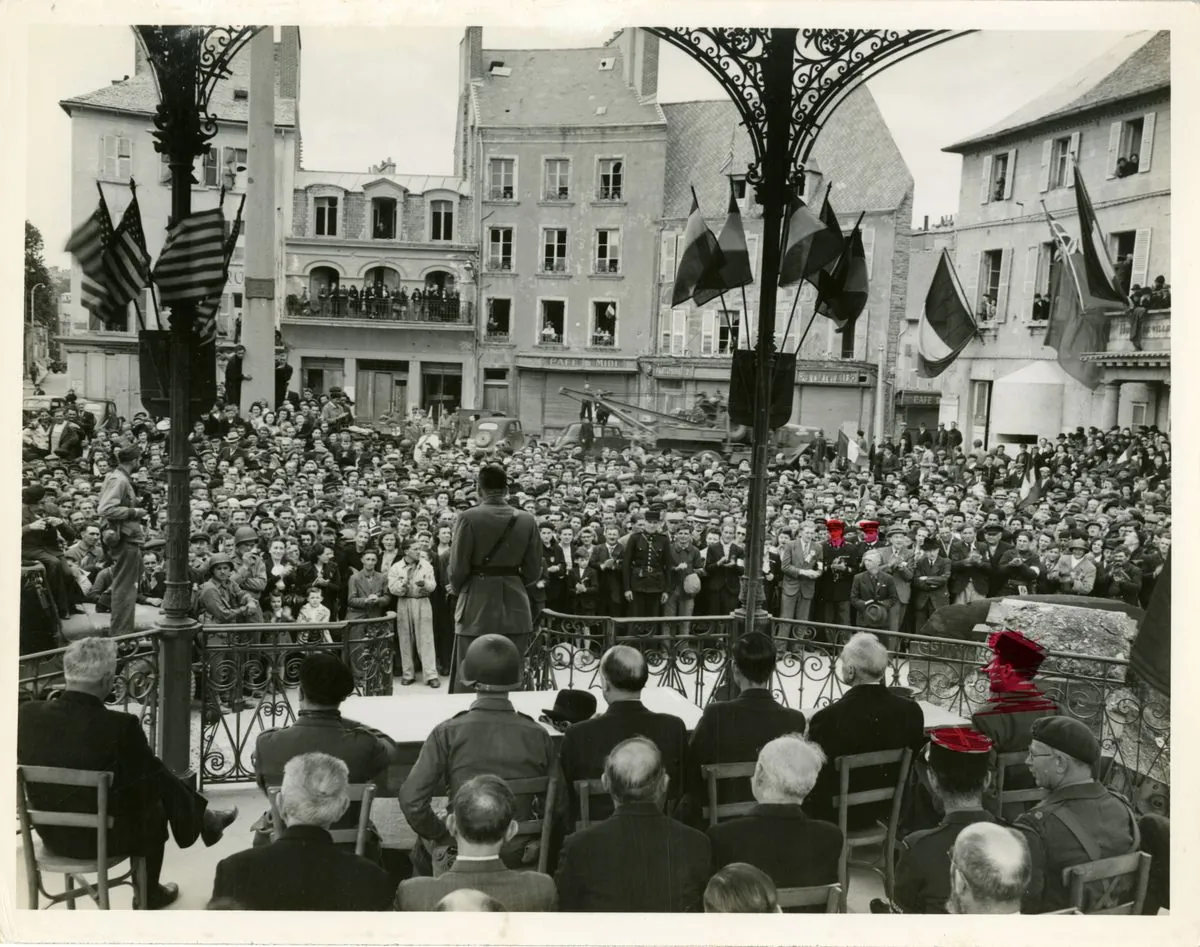Tragic Liberation: A French Village's 80-Year-Old Scar Remembered
A daughter recounts her mother's harrowing experience during the liberation of a French village in WWII. The joyous day turned tragic when 13 locals were massacred, leaving lasting scars on survivors and their families.

In the small village of Rieux-en-Cambrésis, near the Belgian border, a solemn commemoration marks the 80th anniversary of its liberation during World War II. This event, blending celebration with remembrance, carries a poignant reminder of the day's tragic turn.
The author, representing her 92-year-old mother Jeanne, delivers a speech recounting the events of September 2, 1944. Jeanne, known locally as "l'Anglaise" (The English Woman), was one of the few surviving witnesses to the village's liberation and subsequent tragedy.
During the war, Jeanne's family found refuge in Rieux-en-Cambrésis. Her father, Tom Sarginson, an engineer at the Courtaulds factory in Calais, was interned in Upper Silesia following the Nazi invasion on May 10, 1940. His wife Nell, a resilient woman from Birmingham, was left to care for their three daughters in occupied France.

On the day of liberation, excitement filled the air as news of approaching American troops spread. A group of local young men, including members of the Forces Françaises de l'Intérieur (FFI), the official name for the French Resistance, set out to greet the liberators. Tragically, they encountered German soldiers, resulting in a massacre that claimed 13 lives.
"Shortly afterwards we heard shots... When two American tanks arrived in the village, they were greeted with cheers of wild delight. After more than four long years for France the war was over – liberation at last!"
The joy of liberation was quickly overshadowed by grief as the village learned of the massacre. The youngest victim was merely 14 years old. This event left an indelible mark on the community and Jeanne, who witnessed the aftermath.
Today's commemoration in Rieux-en-Cambrésis blends 1940s nostalgia with solemn remembrance. Visitors experience a village fête atmosphere, complete with period music, dancing, and cuisine. However, displays of the victims' photographs serve as a stark reminder of the lives lost.
The tragedy's impact reverberates through generations. Descendants of those killed, like Nicole Dupuis' husband, speak of the enduring trauma. For Jeanne, the events of that day fundamentally altered her outlook on life.
Jeanne's story, documented in her book "Nell and The Girls," serves as a testament to the importance of preserving these historical accounts. As witnesses to such events become fewer, these narratives ensure that the complexities of war and liberation are not forgotten.
The author's connection to France, stemming from her family's wartime experiences, highlights the lasting bonds formed during those tumultuous years. A new plaque in Rieux-en-Cambrésis, bearing the faces of the 13 victims, stands as a permanent reminder of the village's loss and resilience.
This commemoration underscores the necessity of remembering not just the jubilation of liberation, but also its sometimes tragic cost. It serves as a poignant reminder of the multifaceted nature of historical events and the importance of preserving personal narratives for future generations.


































